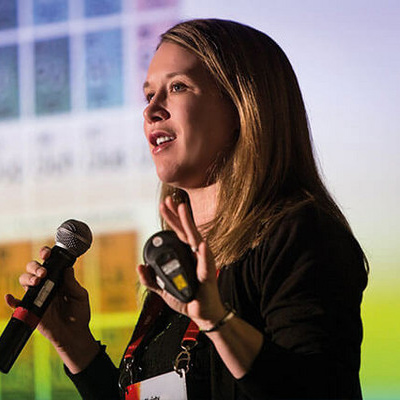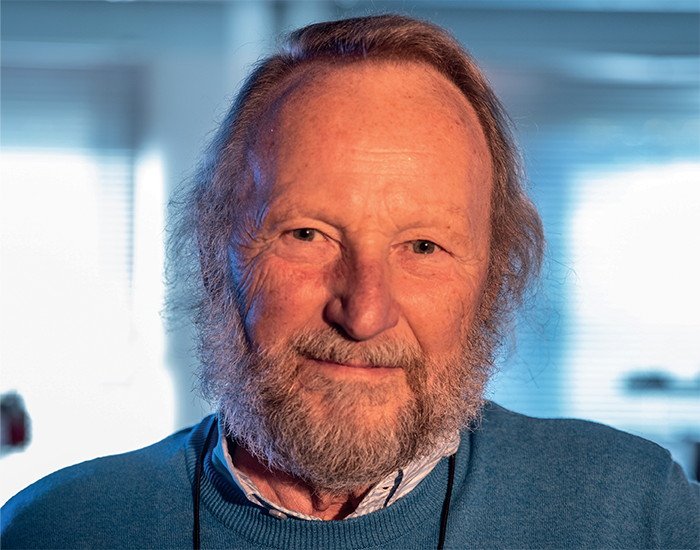Mentors in Unlikely Places
Thomas J. Wenzel: One often thinks of a mentor as someone in a role above you. However, while many people within this bracket have inspired me over the years, a person that stands out is a peer. Cindy Larive worked closely with me for over two decades before taking her current role as Chancellor at the University of California Santa Cruz. I admire Cindy’s leadership skills, vision, work ethic, warmth, and sense of humor. Her ability to state her views in an encouraging and respectful way often enhances the productivity of those around her. Working with Cindy was always a rewarding and inspirational experience.

Thomas Wenzel

Christy L. Haynes
Christy L. Haynes: I had a mentee that really inspired me – a graduate student that acknowledged me in her thesis. She wrote, “You truly believed I deserved to be here and worked tirelessly to nominate me for awards, accolades, and supported my dreams outside of science. You said my name in rooms where it mattered.” I think about this regularly, and it reminds me how important it is to keep saying mentee’s names in rooms where it matters.
Pat Sandra: During my career, I’ve met most of the pioneers and leaders in separation techniques: Archer Martin (1952 Nobel prize for partition chromatography), Marcel Golay (capillary columns in GC), and Ray Dandeneau (introduction of fused silica columns) to name a few.
However, the person who had the biggest influence on my curriculum is the late, great Rudof Kaiser. From 1954 to 1960, Rudolf performed research in the German Democratic Republic and in Russia on TLC and GC. His work became internationally recognized and Rudolf received many invitations to present his work at symposia and universities in West European countries. For obvious reasons, the situation (East – West) became very critical and untenable and the Kaiser family emigrated to the Federal Republic of Germany, where Kaiser was soon employed by BASF in Ludwigshafen. In 1972, he decided to become independent and founded the Institute for Chromatography (IfC) in Bad Dürkheim that he directed until his retirement.
What Rudof achieved during his career in the field of chromatography is enormous and only a few important achievements are briefly presented. In 1959, at the first Chromatography Conference in Moscow he coined the phrase “Chromatography separates substances but unites people.” In 1992, the new tombstone of the founder of chromatography Michael Tswett in Voronezh, Russia, cited the following: “He could discover chromatography, which separates molecules, but unites people.”
Rudof united scientists through international symposia, such as the International Symposium on Capillary Chromatography and the International Symposium on High-Performance Thin-Layer Chromatography. In the early 1960s, Rudolf published four comprehensive text books on GC – one of which was the first book on capillary GC. He published around 200 publications in international journals with peer review and wrote more than 20 books – some with challenging titles, such as Computer Chromatography in 1983! In addition, he was the initiator of three journals namely Chromatographia, Journal of Planar Chromatography, and the Journal of High-Resolution Chromatography and Chromatography Communications. The latter merged in 1978 with the Journal of Microcolumn Separations and is now the Journal of Separation Science.
Over the years, the Institute for Chromatography became a center of excellence in research and teaching of separation sciences. Close to 10,000 chromatographic practitioners from over 50 countries were inspired through scientific collaborations, courses, and seminars organized in-house or out-house at different universities and industrial laboratories. Needless to say that Rudolf has been a constant inspiration throughout my career. Luckily, because of our friendship, I didn’t have to pay any copyrights.

Pat Sandra
Teaser Credit: Images for collage sourced from Unsplash.com | In Article Credit: All headshots supplied by interviewees




